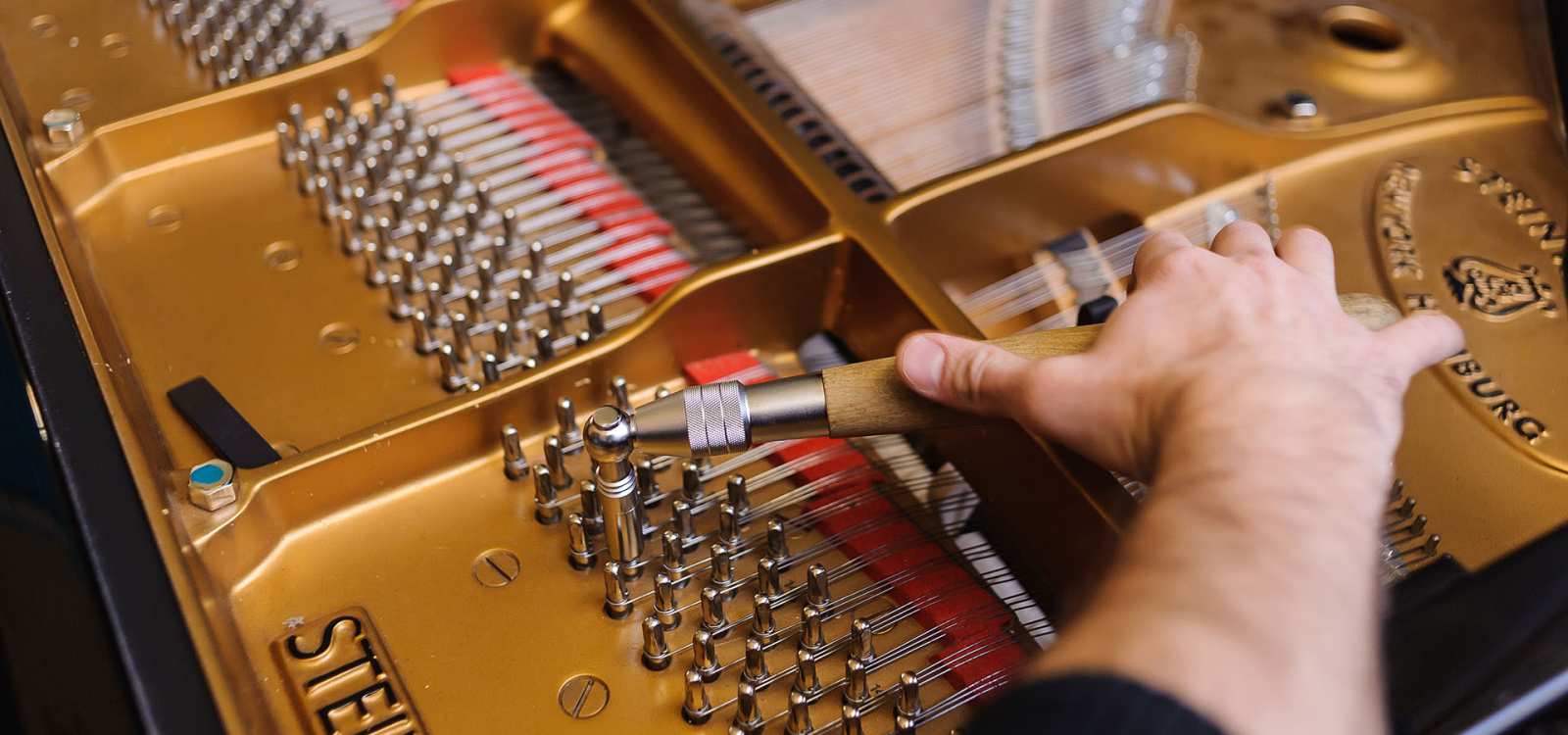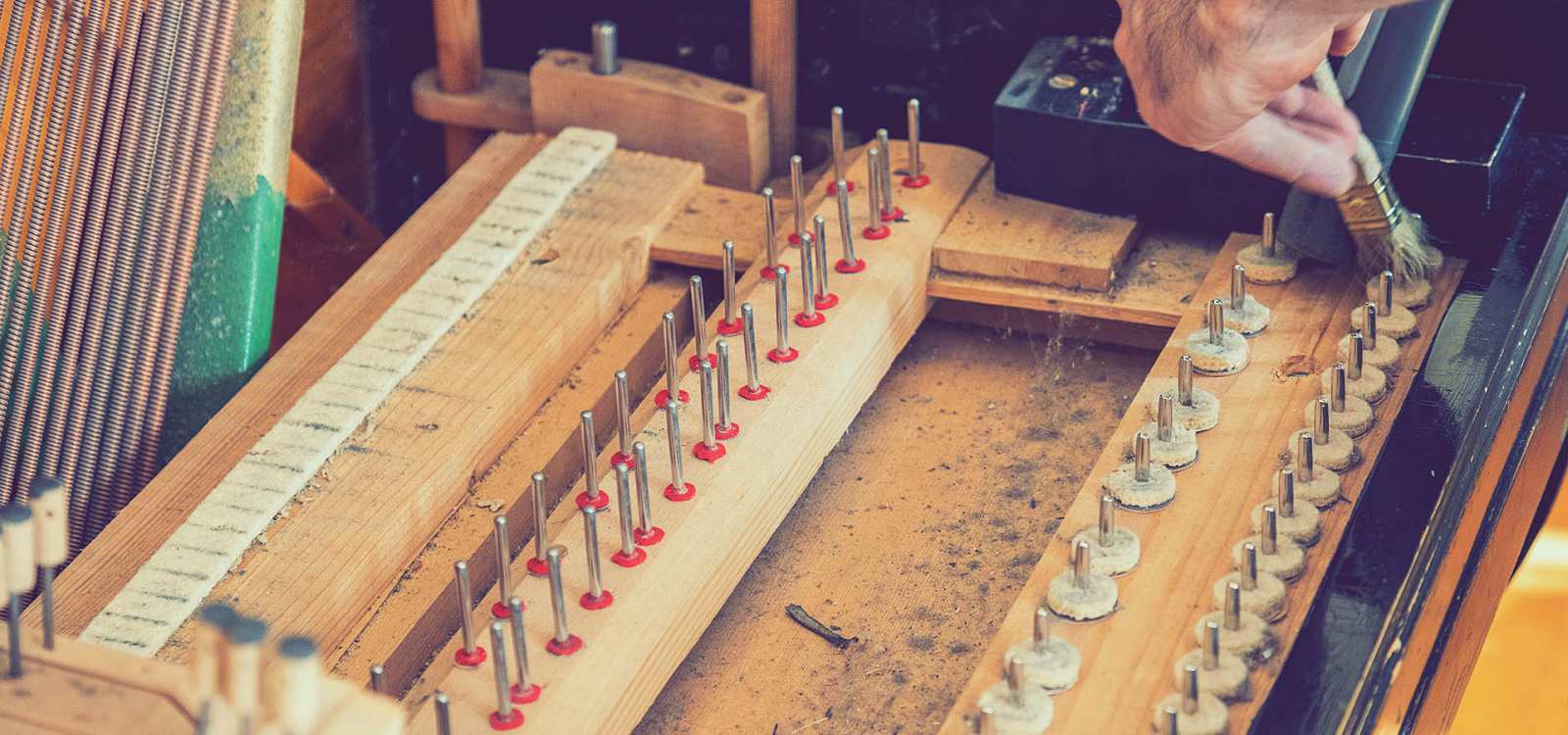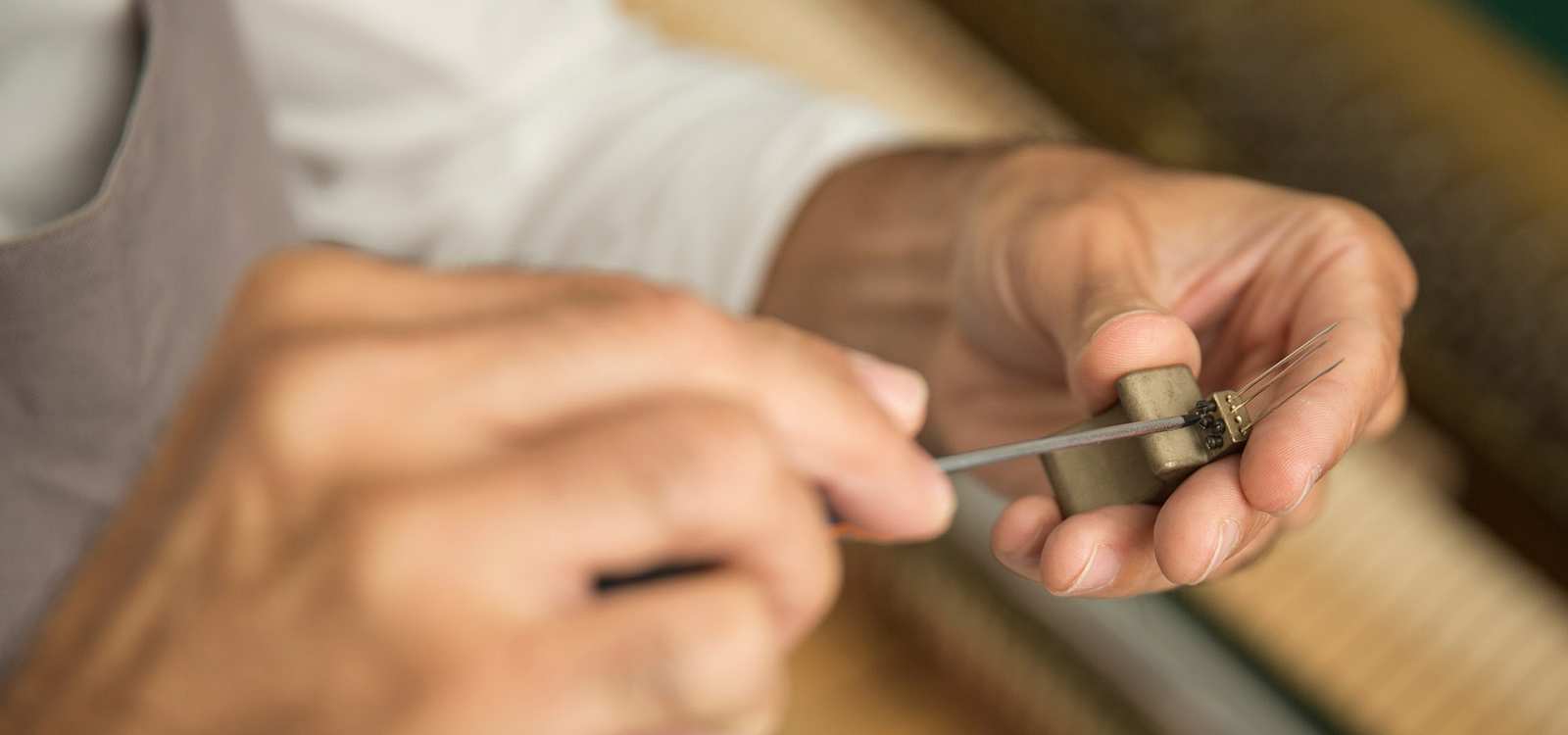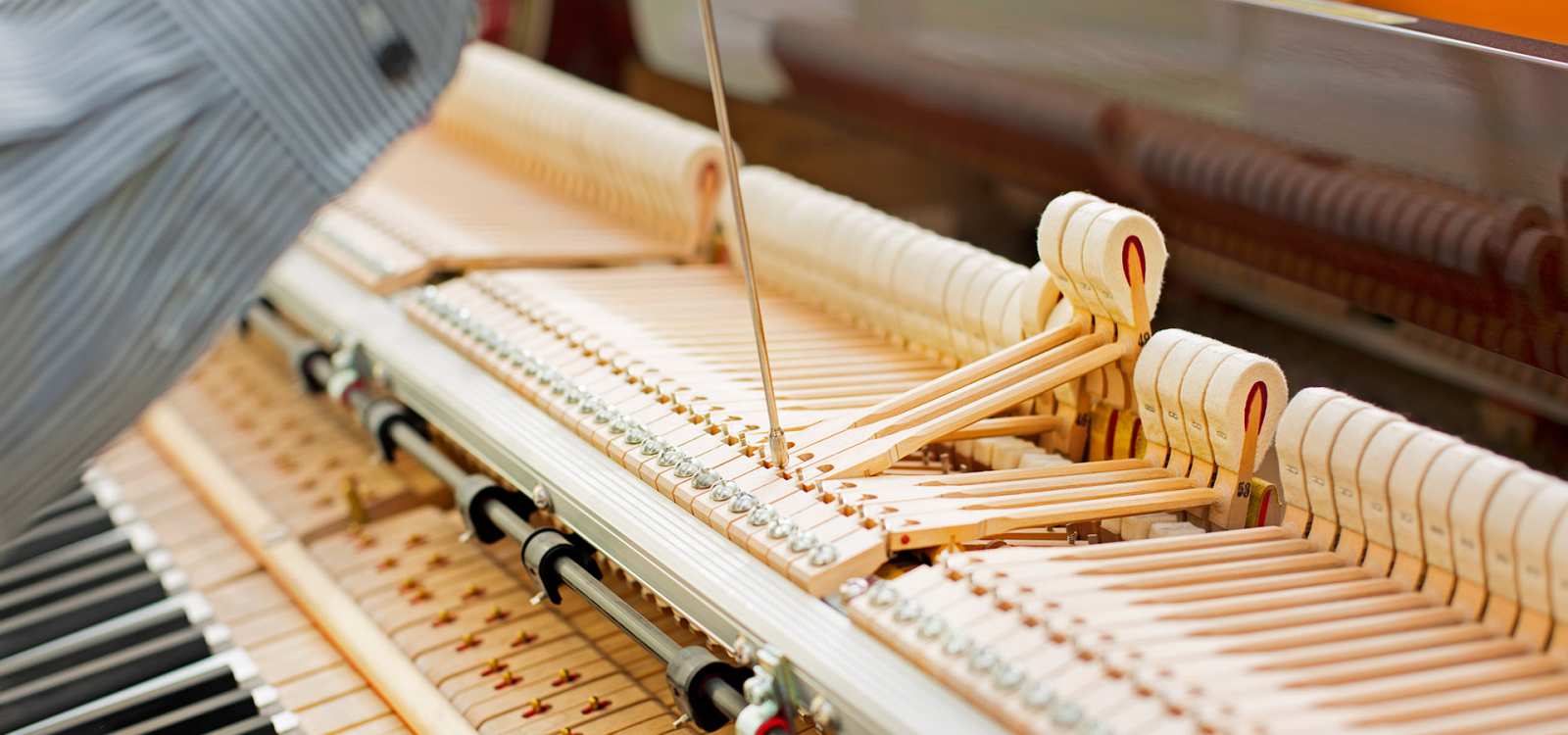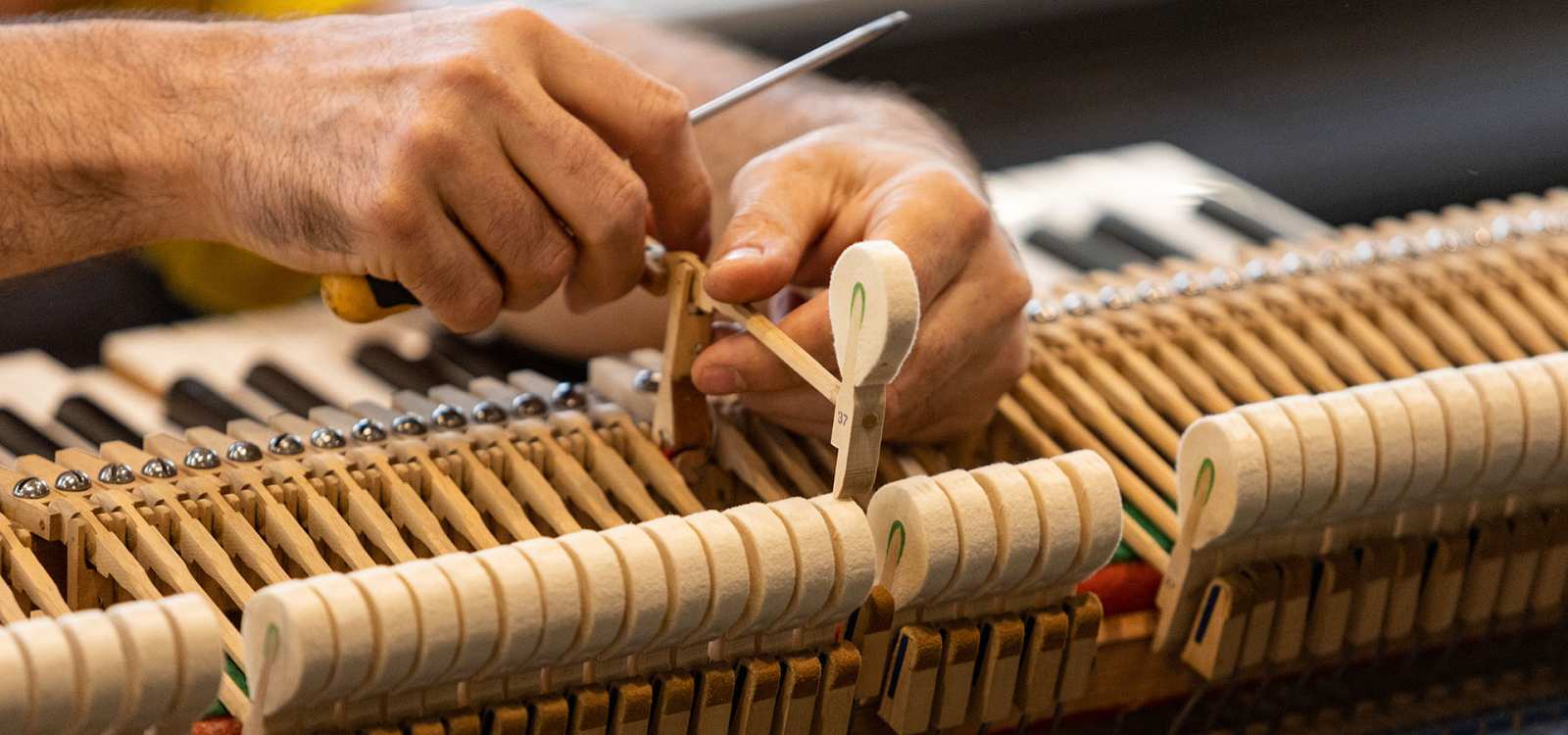Piano tuning
Tuning is a fundamental aspect of piano care. Due to temperament and dissonance characteristics, all intervals on the piano generate beats.
During the tuning process, many of these beats can be heard clearly, and their variations can be recognized. With adequate knowledge of the relationship between beats, accuracy up to the hundredth can be achieved, provided that tuning stability is not an issue. The ability to achieve excellent tuning stability is as important as the ability to analyze the frequency of the notes.
Beats serve as a perfect measuring tool to identify discrepancies between intervals and harmonics. With them, it is possible to control and achieve the correct amplitudes and uniformity of semitones. Piano strings, due to their rigidity, exhibit significant dissonance, resulting in an expansion of the sequence of their harmonics.
Currently, pianos use strings made of harmonic steel, a particular type of high-carbon silicon steel characterized by a high yield strength. The average composition of such strings is as follows: carbon 0.80-0.85%, silicon 0.2-0.4%, manganese 0.15-0.20%.
In the past, it was believed that the sound of the piano originated solely from the soundboard and not from the strings themselves. Today, we know that the sound is generated precisely in the strings when they are struck by the corresponding hammers and begin to vibrate. After a short period known as the attack time, the sound is transmitted to the bridge and subsequently to the soundboard, from which it resonates in the air.
To keep a piano in good condition and produce a pleasant sound, regular tuning is necessary. Conventionally, the international standard reference of A4 = 440 Hz is used. Originally, it was supposed to be 439 Hz, but since it is a prime number, the next higher whole number was chosen.
A piano used for a concert is tuned before each performance and sometimes even during the intermission. Most home pianos should be tuned every six months. This is not because they go out of tune, but because they gradually lose their pitch, and after six months, this becomes noticeable. So, it is not optional advice but a necessity. Initially, a new piano requires more frequent tuning.

 Italian
Italian